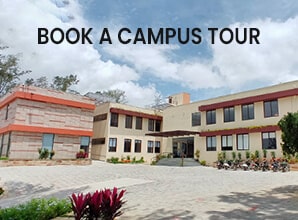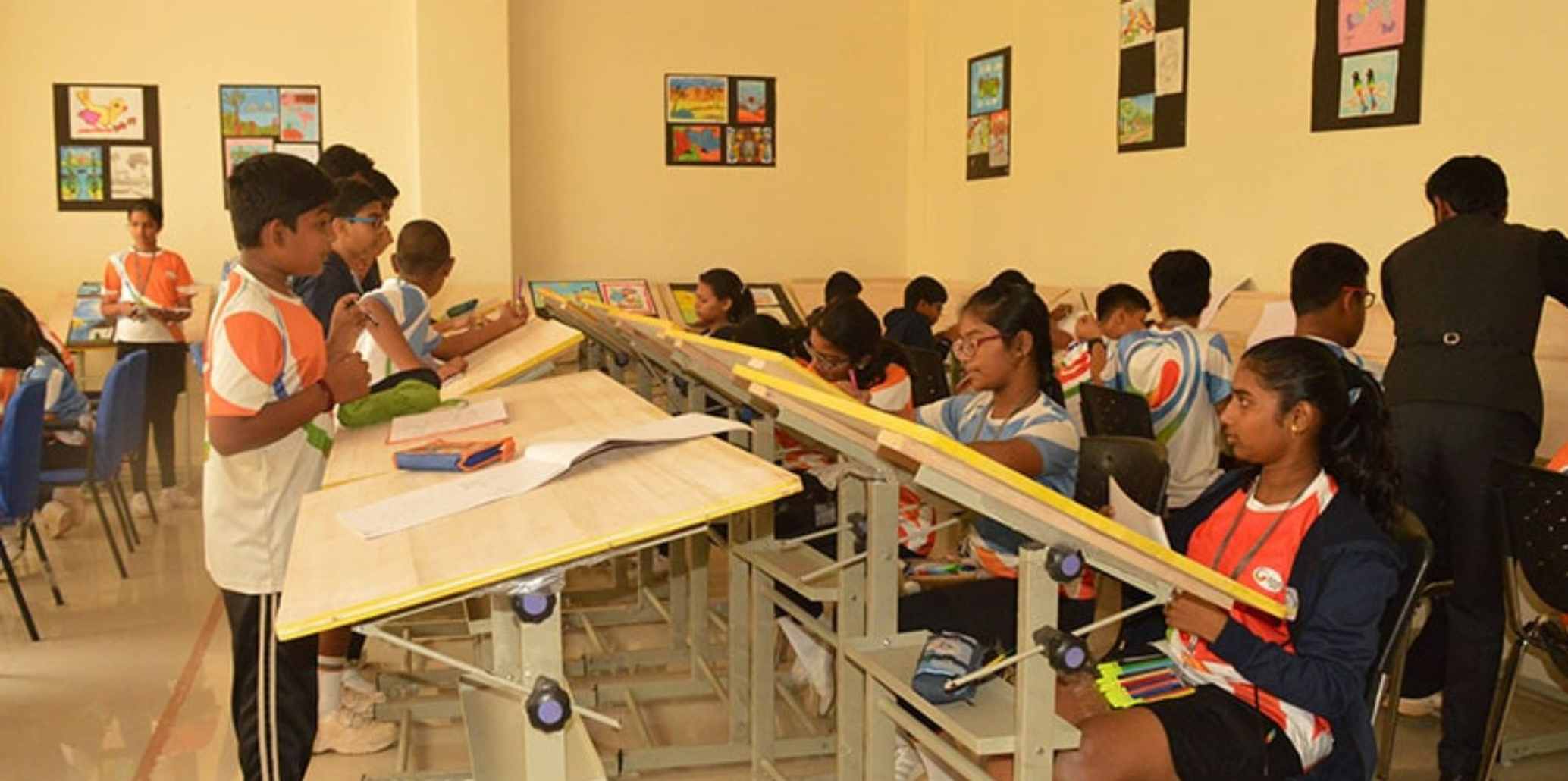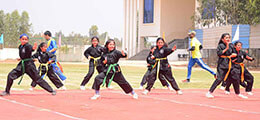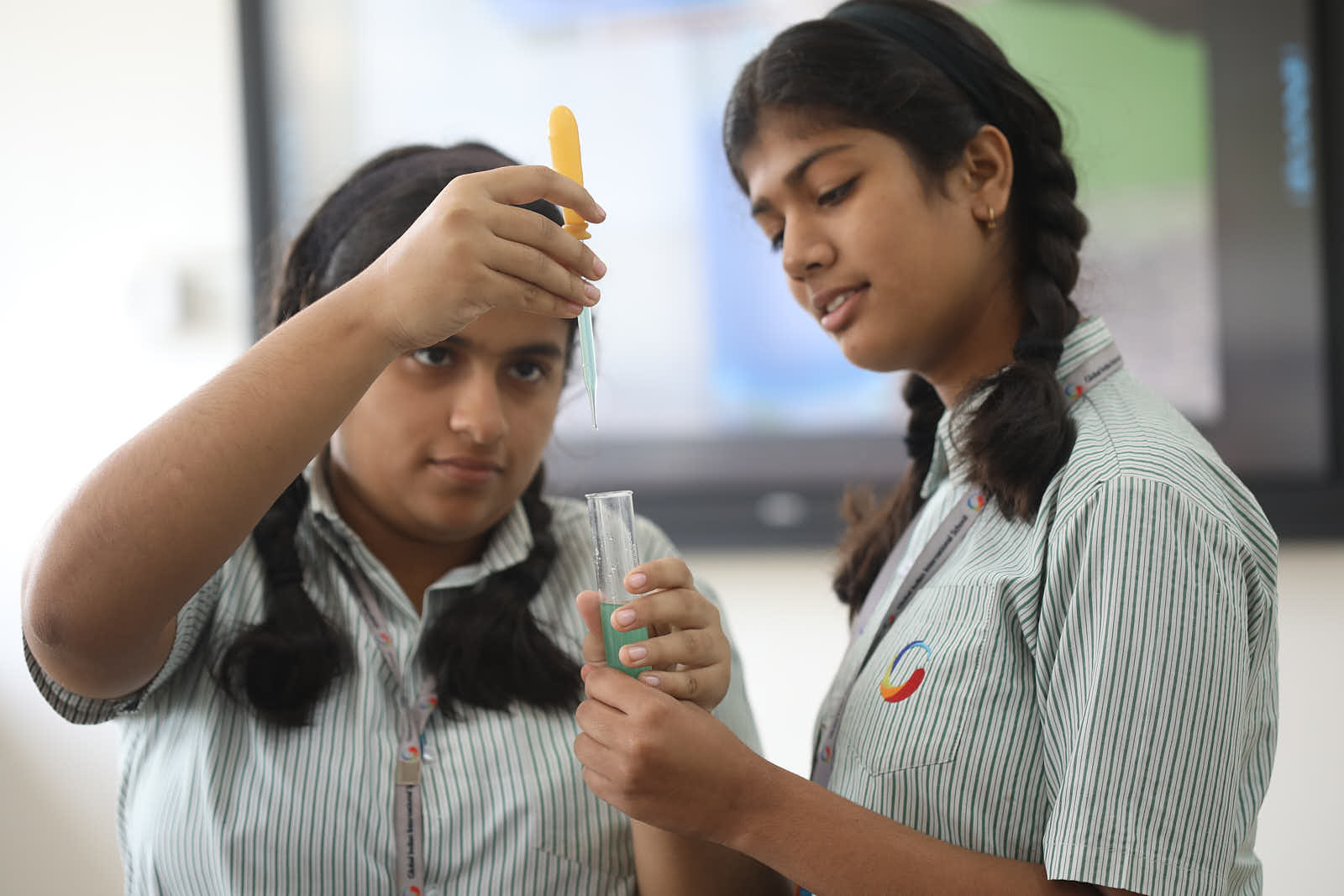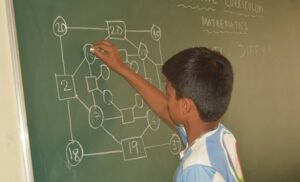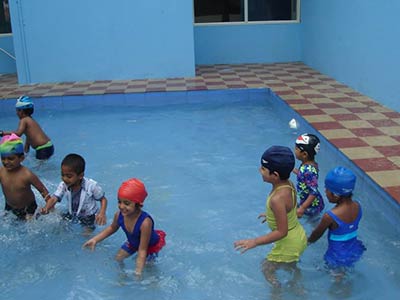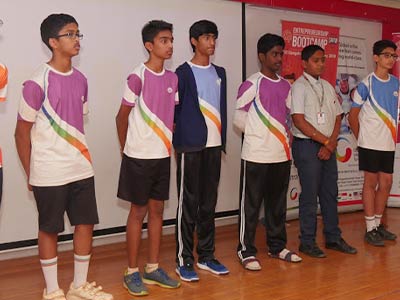Download our FREE Academic Calendar now! 📚 Start your child’s journey to success.
In a world brimming with information and challenges, the International General Certificate of Secondary Education (IGCSE) is one such curriculum that can beat the competition. Standing as a beacon of holistic education, empowering students not just with academic knowledge but also with invaluable skills.
In today’s rapidly evolving world, where innovation and adaptability are paramount, IGCSE can meet the educational demands of students who are encouraged to question, analyze, and use creative approaches for any challenges which is a fundamental requirement.
As per the World Economic Forum report in 2021, both these skills; critical thinking and problem-solving skills are among the top ten skills for growth and employment in future
As technology continues to reshape our world, the ability to synthesize information, think critically, and bring out creative solutions will become more valuable.
This trait is not just beneficial but necessary for thriving in the 21st century, and this is precisely where the Global International School Bangalore and its IGCSE curriculum truly shines.
The Significance of Critical Thinking and Problem Solving
Critical thinking ability helps to analyze information and form judgments based on evidence and reason. It helps students to question myths or assumptions, identify biases, evaluate arguments, and consider alternative perspectives.
Problem-solving abilities help to identify the problem, find creative solutions and adapt to new circumstances.
Solving problems and thinking logically is more essential than ever for academic success along with personal growth and professional development.
Let’s understand how:
● The world is becoming increasingly complex with lots of Information. Thus it becomes difficult to assess which is true and relevant. Critical thinking skills enable students to navigate this information overload and make informed decisions.
● Technology is transforming at an astonishing rate constantly and affecting every aspect of our lives and with that come new challenges. It allows students to adapt to new changes easily and find solutions.
● Employers are seeking individuals who have exceptional skills to think critically, solve problems easily, and communicate effectively.
How do these skills contribute to personal and academic success?
● Critical thinking education fosters curiosity and develops a love for lifelong learning. It helps students to explore new ideas and challenges them to think outside of the box.
● The power to solve problems empowers students to find solutions for issues related to learning, goal setting, etc. They learn how to identify obstacles and develop strategies to overcome them.
Tips for Schools:
● Incorporate inquiry-based learning into the curriculum where students get to ask questions, investigate problems, and draw their own conclusions.
● Provide opportunities for collaborative learning where they can share ideas, debate different perspectives, and reach consensus solutions.
● Teachers should show students how to research effectively as it can help them to evaluate sources, identify biases, and use credible information.
● Create a classroom environment where students can experiment and learn.
● Give them real-life situations and ask them to apply their knowledge to solve problems.
These essential life skills empower students to become knowledgeable, adaptable, and successful. Schools should nurture such skills ensuring that students are prepared to thrive in an ever-changing world.
IGCSE Curriculum Overview
It is a globally recognized International curriculum usually taken by students who are between the age of 14-16, who are in their final two years of secondary education
Key Features of the IGCSE Curriculum
● Rigorous and challenging: Highly rigorous, it meets the International standards of academic excellence.
● Broad and balanced: A wide range of subjects helps students pursue what they love and get a well-rounded education.
● Flexible and adaptable: Highly adaptable, helping schools to meet the needs of local curriculum and their students.
Subjects Covered by the IGCSE Curriculum
It offers over 70+ subjects, divided into 5 groups:
● Languages Literature: English, French, German, Spanish, and many more languages.
● Humanities & Social Sciences: Religious and Business Studies, Humanities, History Geography.
● Sciences: Chemistry, Biology, Physics, Combined and Additional Science.
● Mathematics: Mathematics and Statistics.
● Creative and Professional: Art and Design, Information and Communication Technology (ICT), Music, Physical Education, and Drama.
Benefits of the IGCSE Curriculum
● It prepares students for higher education.
● It is highly valued by top institutions and employers around the world.
● It equips students with essential skills such as communication, and research skills.
● It encourages students to understand broader perspectives and different cultures.
Incorporating Critical Thinking into IGCSE Education
The development team of the IGCSE curriculum knows the importance of critical thinking and has incorporated it in various ways into the curriculum. They have implemented various strategies and approaches to foster this skill in students.
Key Principles of Critical Thinking in IGCSE approach to learning
● Questioning assumptions and biases: Students are encouraged to ask questions in order to find the true source of information.
● Evaluating evidence: Students learn to check the credibility of sources and distinguish between right and wrong.
● Forming well-reasoned arguments: Students develop the ability to make logical statements, support their claims with proofs, and consider alternative solutions.
How the IGCSE Curriculum Encourages Critical Thinking
The Cambridge board schools in Bangalore promote critical thinking in many ways:
1. Inquiry-based learning: Students learn by asking questions, identifying problems and bringing solutions.
2. Project-based learning: Working on many projects equips students with the skills to research, analyze, and synthesize information.
3. Debates and discussions: Participating in various debates and discussions helps them to convey their viewpoints, defend their statements and consider the opposition’s perspectives.
4. Source analysis: Students learn to evaluate different types of sources such as texts, data, media, etc.
5. Essay writing: Students have projects where they have to write essays on complex topics, formulate arguments, and support their claims with supporting evidence.
Examples of Subjects and Activities that Promote Critical Thinking
1. History: Students analyze historical events from many perspectives.
2. Science: Students collect and analyze data, and draw conclusions based on their hands-on experiments.
3. English Literature: Students read literary texts, identify themes, and interpret the author’s purpose.
4. Mathematics: Students solve complex mathematical problems by identifying patterns and applying logical reasoning.
5. Business Studies: Students take business case studies, evaluate market trends, and make informed decisions based on critical analysis.
IGCSE’s approach to learning focuses on empowering students to become independent thinkers, capable of analyzing information, forming judgments, and making informed decisions.
Fostering Problem-Solving Skills in IGCSE Schools
Knowing the significance of Problem-solving techniques, the school has implemented them in the curriculum in various ways to nurture these abilities in the students.
Tips to Fostering Problem-Solving Skills
● Developing a problem-solving mindset: Students should be encouraged to approach challenges with a positive mindset and as a means of opportunities for learning and growth.
● Breaking down complex problems: Guide students to breaking down complex problems into smaller ones which will make them more manageable and less daunting.
● Identifying multiple solutions: Encourage students to explore and approach from different perspectives as it will help them generate multiple solutions fostering creativity and thinking out of the box.
● Evaluating solutions: Let students make decisions and help them assess the effectiveness of different solutions so that they learn to take responsibility and understand consequences.
● Learning from experiences: Ask them what they have learned from their experiences as it will help them learn lessons and identify areas for improvement.
Methods and Approaches Used in IGCSE Schools to Nurture Problem-Solving Abilities
1. Project-based learning: Solving problems by applying their knowledge and skills helps them to get real-life experience.
2. Collaborative learning: Collaborating in teams with other students helps them to brainstorm together, share ideas, and figure out solutions. This collaboration broadens their perspective and develops teamwork and communication skills.
3. Inquiry-based learning: Students are encouraged to ask questions, and explore and investigate problems.
4. Case studies: Students are given various case studies to analyze and identify root causes and develop effective solutions.
5. Creative thinking exercises: Students are given various creative thinking exercises, such as brainstorming sessions, mind mapping, role-playing, etc., which stimulates their thinking, helping them to develop innovative solutions.
6. Technology integration: Students are provided with various resources and technology tools such as data analysis software, and online collaboration platforms which enhance their problem-solving skills.
7. Cross-disciplinary learning: Students are encouraged to apply knowledge from one area to another or real-life problems to promote interdisciplinary thinking and adaptability.
8. Real-world problem-solving competitions: Students are given various platforms such as science fairs, and engineering competitions where they are able to showcase their problem-solving abilities.
Benefits of IGCSE’s Approach to Education
The benefits of the IGCSE Bangalore approach are multifaceted, impacting students’ academic, personal, and professional development.
1. Rigorous and Internationally Recognized Qualifications
IGCSE qualifications are highly regarded by universities worldwide giving students a competitive edge during admission to higher education.
2. Broad and Flexible Curriculum
The IGCSE curriculum’s diverse subjects help students explore their interests, and choose subjects that can help them in their career.
3. Emphasis on Critical Thinking and Problem-Solving Skills
IGCSE equips students with better Critical thinking and problem-solving skills. This way, they perform better in professional life as they know how to adapt to new trends and find solutions. It is an essential skill in almost all fields of a career.
4. Promotes Global Citizenship and Cultural Understanding
The IGCSE curriculum exposes them to diverse cultures, and global issues, etc., enabling them to appreciate cultural differences and respect people from different backgrounds. This skill will help them in professional settings during collaborations with people from different cultures.
5. Prepares Students for the Workplace
It equips students with the essential knowledge and skill sets which are needed to thrive in a 21st-century world. These skills are highly sought-after giving graduates a competitive edge in the job market.
6. Promotes Lifelong Learning and Intellectual Curiosity
The curriculum fosters a love of learning and encourages students to become lifelong learners.
8. Promotes Personal Growth and Self-Development
It also contributes to students’ personal growth and self-development by encouraging them to make informed decisions, develop confidence in their abilities and learn to adapt to new challenges, etc., which are essential skills for personal and professional success.
9. Enhances Adaptability and Resilience
IGCSE builds resilience in students, their ability to adapt and respond effectively to change is crucial.
Conclusion
To thrive in a competitive world, education is your most valuable asset. The investment in the right curriculum will empower you to achieve your dreams, unlock your potential, and sustain your future.
Remember to believe in your limitless potential. Embrace challenges as opportunities for growth. Never stop learning and exploring.
FAQs
How to teach problem-solving and critical thinking in schools?
Foster inquiry-based learning, provide opportunities for hands-on learning, teach students how to evaluate information and promote collaborative learning.
How can schools improve critical thinking?
● Incorporate critical thinking skills into all subjects.
● Provide professional development opportunities for teachers to enhance their own critical thinking skills.
● Provide students with regular feedback.
How do you integrate critical thinking and problem-solving?
● Link problem-solving scenarios to real-world contexts.
● Encourage students to analyze problems from multiple perspectives.
● Teach students to evaluate the effectiveness of their solutions.
● Encourage students to reflect on their thinking process and identify strategies for improvement.

 Bannerghatta Campus
Bannerghatta Campus